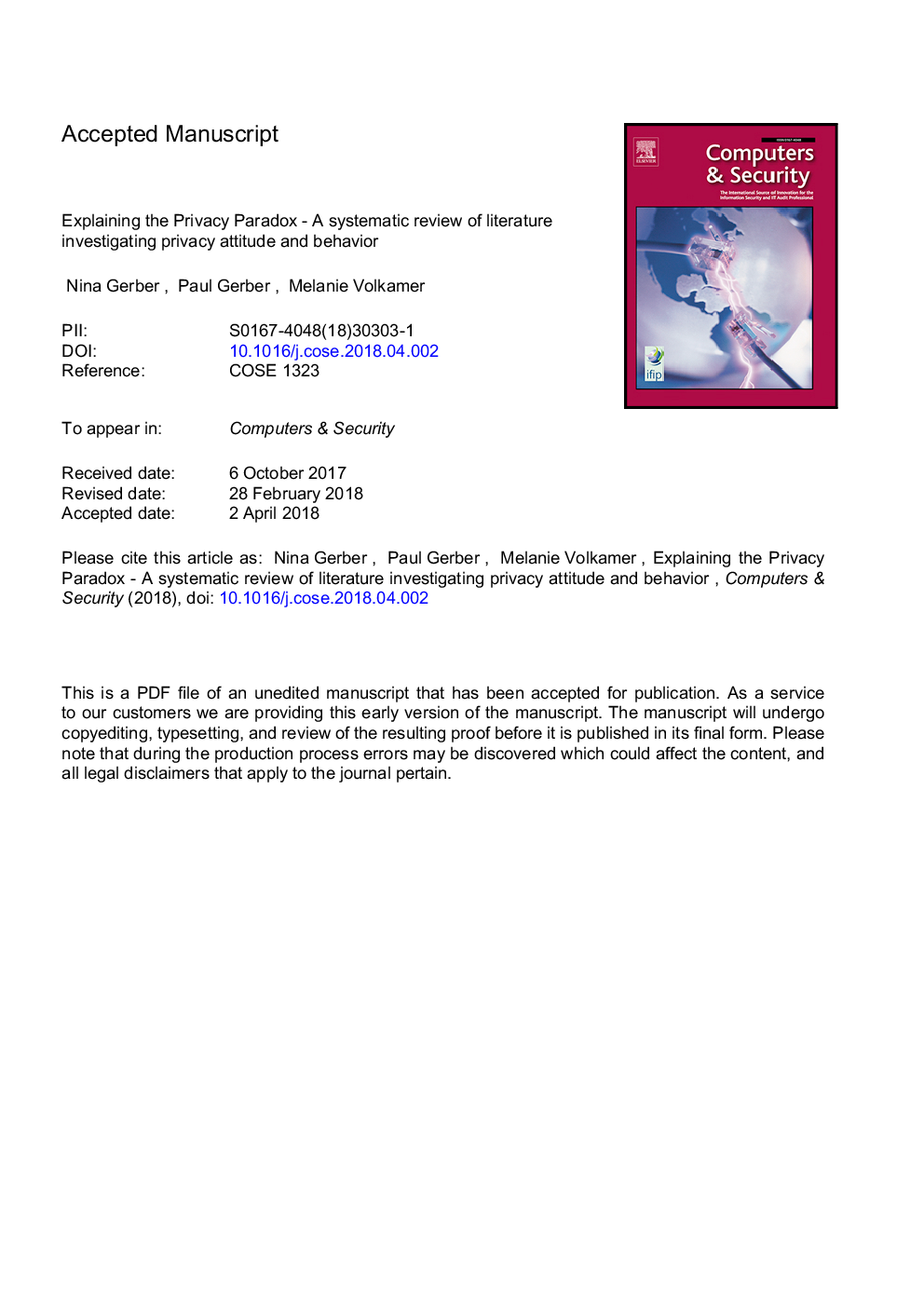| کد مقاله | کد نشریه | سال انتشار | مقاله انگلیسی | نسخه تمام متن |
|---|---|---|---|---|
| 6883855 | 1444208 | 2018 | 52 صفحه PDF | دانلود رایگان |
عنوان انگلیسی مقاله ISI
Explaining the privacy paradox: A systematic review of literature investigating privacy attitude and behavior
ترجمه فارسی عنوان
توضیح پارادوکس حفظ حریم خصوصی: بررسی سیستماتیک از ادبیات بررسی نگرش و رفتار حریم خصوصی
دانلود مقاله + سفارش ترجمه
دانلود مقاله ISI انگلیسی
رایگان برای ایرانیان
کلمات کلیدی
پارادوکس حریم خصوصی، حریم خصوصی اطلاعات روانشناسی کاربر، متغیرهای پیش بینی کننده، بررسی ادبیات،
موضوعات مرتبط
مهندسی و علوم پایه
مهندسی کامپیوتر
شبکه های کامپیوتری و ارتباطات
چکیده انگلیسی
Although survey results show that the privacy of their personal data is an important issue for online users worldwide, most users rarely make an effort to protect this data actively and often even give it away voluntarily. Privacy researchers have made several attempts to explain this dichotomy between privacy attitude and behavior, usually referred to as 'privacy paradox'. While they proposed different theoretical explanations for the privacy paradox, as well as empirical study results concerning the relationship of individual factors on privacy behavior and attitude, no comprehensive explanation for the privacy paradox has been found so far. We aim to shed light on the privacy paradox phenomenon by summarizing the most popular theoretical privacy paradox explanations and identifying the factors that are most relevant for the prediction of privacy attitude and behavior. Since many studies focus on the behavioral intention instead of the actual behavior, we decided to consider this topic as well. Based on a literature review, we identify all factors that significantly predict one of the three privacy aspects and report the corresponding standardized effect sizes (β). The results provide strong evidence for the theoretical explanation approach called 'privacy calculus', with possibly gained benefits being among the best predictors for disclosing intention as well as actual disclosure. Other strong predictors for privacy behavior are privacy intention, willingness to disclose, privacy concerns and privacy attitude. Demographic variables play a minor role, only gender was found to weakly predict privacy behavior. Privacy attitude was best predicted by internal variables like trust towards the website, privacy concerns or computer anxiety. Despite the multiplicity of survey studies dealing with user privacy, it is not easy to draw overall conclusions, because authors often refer to slightly different constructs. We suggest the privacy research community to agree on a shared definition of the different privacy constructs to allow for conclusions beyond individual samples and study designs.
ناشر
Database: Elsevier - ScienceDirect (ساینس دایرکت)
Journal: Computers & Security - Volume 77, August 2018, Pages 226-261
Journal: Computers & Security - Volume 77, August 2018, Pages 226-261
نویسندگان
Nina Gerber, Paul Gerber, Melanie Volkamer,
